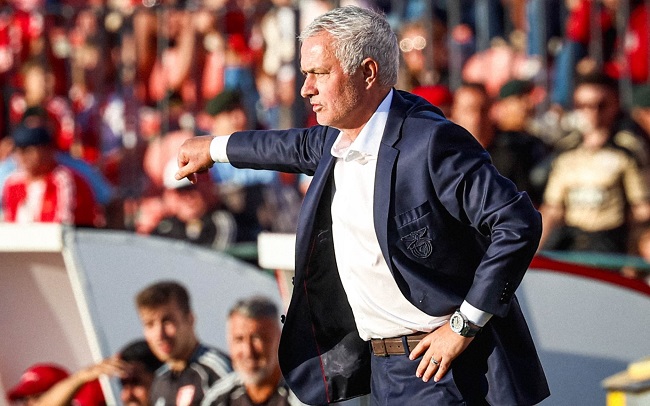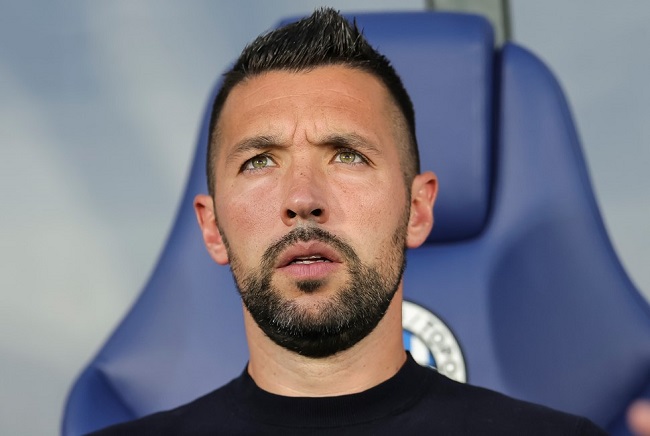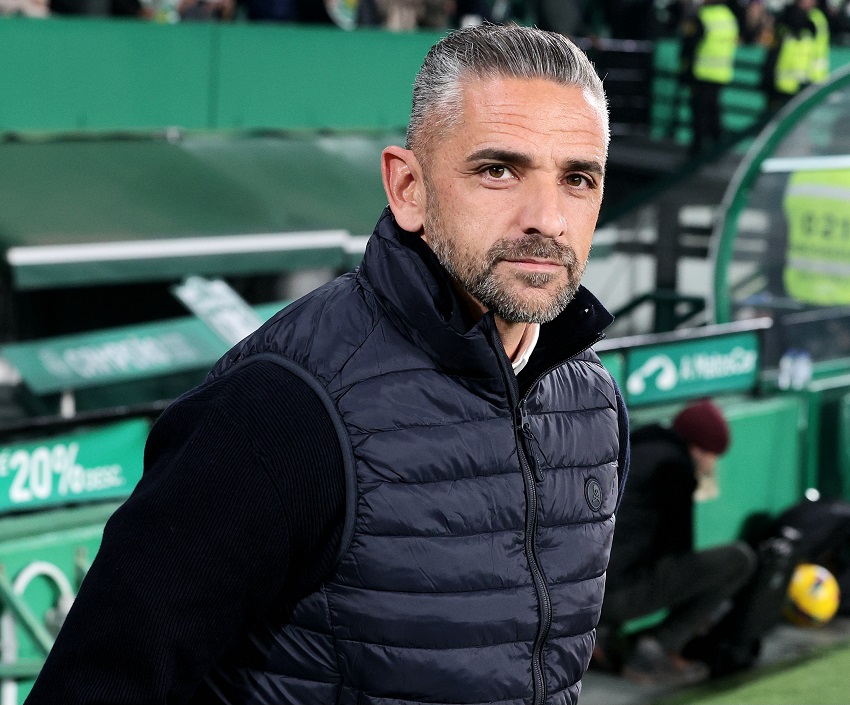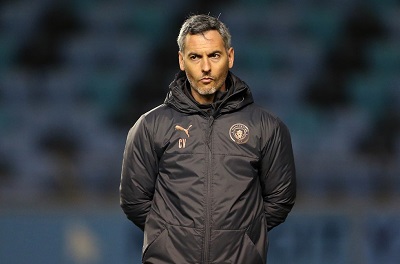There’s always something stirring in Portuguese football. You can feel it at the Estádio da Luz when Benfica starts working up a head a steam in front of their fervent fans. You sense it in Porto’s refusal to give up, no matter what the game circumstances or how long is left in the match. Even Sporting, once the idealists of Lisbon, have found a harder, steelier edge.
And while everyone else in Europe wildly chases money or argues about ownership, Portugal keeps doing what it’s always done. Reinventing itself quietly. Some fans follow it obsessively, tracking lineups, data, even the odds on gambling sites accepting Neosurf — not for the thrill of betting, but to understand where momentum really lives.
Because in Portugal, the margins matter, with clever stratagems often the difference between winning the league or losing it in the fierce rivalry between the nation’s “Big Three”.
***
Benfica turn to Mourinho

Let’s start with Benfica. Portugal’s biggest club has made a habit of producing gems such as João Neves, and has an almost unmatched ability domestically in attracting world stars, like Ángel Di María. Yet both players have flown the nest, and that exemplifies the Eagles.
While fans flock to see some of the finest protagonists of the beautiful game, they also have to contend with a constant turnover of players and lack of stability.
Let’s face it. If Benfica’s top management made the right decisions the club could dominate the league in the same way Bayern Munich does in Germany, or PSG in France. That they don’t is down to the ferocious competition put up by FC Porto and Sporting – more of that below – but also the constantly changing personnel, both on the pitch and in the dugout.
However, president Rui Costa may just have pulled off a masterstroke when he appointed José Mourinho as the new Benfica manager. The greatest ever Portuguese manager coaching the country’s biggest team. A match made in heaven? The most optimistic Benfica fans even dream of a return to the golden era of the club in the 1960s, when they reached the European Cup final five times in one decade, lifting the trophy twice.
The eyes of the world are on the Portuguese capital to see how the next chapter of The Special One’s incredible career plays out.
Porto recover their DNA
 After playing second fiddle to their Lisbon rivals for most of the early history of football in Portugal, Porto rose majestically to dominate the domestic game for nigh on four decades from the 1980s onwards.
After playing second fiddle to their Lisbon rivals for most of the early history of football in Portugal, Porto rose majestically to dominate the domestic game for nigh on four decades from the 1980s onwards.
The Dragons are proud of their role as standard-bearers for the hard-working industrial northern region of Portugal, but it is not just determination and a never-say-die attitude that makes them a great team.
Full commitment yes, but it was also thanks to players of marvellous technique and audacity that the Blue and Whites became European champions in 1987. Astute scouting kept them at the top, as none other than José Mourinho made them kings of Europe again two decades later.
After a few poor years, new coach Francesco Farioli seems to have instilled renewed vigour into Porto, with several trademark last-gasp victories suggesting the club are well and truly back on the road to success. Porto currently lead the way in the Primeira Liga and have started their Europa Liga campaign strongly.
Sporting’s new-found success shows no signs of abating
 For so long living in the shadows of Porto and Benfica, Lisbon giants Sporting have recently done justice to their symbol – a Lion – by roaring back to significance and then some.
For so long living in the shadows of Porto and Benfica, Lisbon giants Sporting have recently done justice to their symbol – a Lion – by roaring back to significance and then some.
Transformed by Ruben Amorim’s appointment in 2020, Sporting have won the title three times in the last five years, and have ended top of the tree in the last two seasons.
Coach Rui Borges has done well to build on the foundations laid by Amorim, and the stability throughout the club over this happy period has been key. Many of the same players have been at the José Alvalade stadium since the start of Sporting’s sudden trophy glut – Pedro Gonçalves, Gonçalo Inácio, Daniel Bragança, Nuno Santos and Matheus Reis – and it is that continuity that has given the Green and Whites the edge over their rivals.
And as ever, Sporting have lost none of their unmatched ability to produce top-class footballers from their famed Alcochete Academy, from where Luís Figo and Cristiano Ronaldo emerged. Nuno Mendes, meanwhile sold to Paris Saint-Germain, is already a global superstar. Look out for Geovany Quenda and João Simões. Two more Sporting academy footballers heading to the top of the game.
Braga fighting for a piece of the action
 If the Big Three are the story, then Braga are the subplot everyone should be reading. Steadily evolving year after year under the presidency of local businessman António Salvador, the northerners are flying again after a few initial hiccups under new coach Carlos Vicens. The Spaniard spent years as Pep Guardiola’s assistant at Manchester City, so he could have no better teacher.
If the Big Three are the story, then Braga are the subplot everyone should be reading. Steadily evolving year after year under the presidency of local businessman António Salvador, the northerners are flying again after a few initial hiccups under new coach Carlos Vicens. The Spaniard spent years as Pep Guardiola’s assistant at Manchester City, so he could have no better teacher.
Braga are flying in Europe, topping the Europa League table right now, and have started to transform their good form abroad to the domestic competitions after a rocky start.
It took a while for Vicens to work out how to get the most out of a radically overhauled squad, but tremendous recent form suggests he was an astute hire by the president. Braga have won five and drawn one of their last six matches, the draw coming at the home of champions Sporting.
Football ingrained
Football is more than a game in Portugal; it’s a national obsession. This fervour explains why a small country constantly punches above its weight, both in terms of its national team and its club teams in Europe.
Portugal’s domestic competitions ooze with passion for the game, making them a popular watch far beyond its borders. Portugal’s clubs may sell talent every summer, but they don’t sell intelligence. They just keep producing it.
Why bettors and analysts are watching closely
Here’s the funny thing: the tactical evolution of the Primeira Liga hasn’t gone unnoticed by analysts and bettors. In England, people follow xG trends. In Portugal, they study rhythm, shifting gears when they look tired, managers tweaking the team’s shape mid-match in search of a marginal gain.
That’s why betting patterns around Portuguese football are so erratic. The league’s unpredictability makes it both a dream and a nightmare for gamblers.
And yet, that’s what makes it fascinating to watch. Because every match feels like a study in control — who loses it, who reclaims it, and who manages it best when the clock hits 90 minutes.
Europe still watches
Every few months, another young Portuguese manager gets linked to a Premier League job. Amorim was long destined to make the move to one of the world’s most prestigious clubs. And when they move, they don’t bring glamour; they bring clarity. They bring systems that make sense, players who think faster than they run, and a way of working that values brains over branding. That’s the true Portuguese export.
A culture that lives football
Spend a night in Lisbon during a big game and you’ll understand. The cafés buzz, radios hum, and every conversation — even those about politics or weather — somehow leads back to football.
There’s a collective literacy here. Kids know formations before multiplication tables. Taxi drivers can name Braga’s backup goalkeeper. And every fan, no matter the club, carries it with hime or her with pride.
It’s football as culture, not content. It’s why the league survives, even thrives, despite losing stars to richer shores year after year.
The future feels familiar
Portugal’s football revolution isn’t only about innovation. It’s about refinement. It’s the same old game, just played with sharper minds and steadier hearts.
And maybe that’s what makes it so magnetic right now. Amid the chaos of global football — billion-dollar transfers, super leagues, endless noise — Portugal remains grounded.
It plays football that remembers what football used to be: a blend of art and argument, patience and pressure, instinct and intellect.
If the rest of Europe wants to know where the next great idea will come from, they might want to start looking south.
Because the Portuguese game — understated, underfunded, and undeniably alive — has never stopped thinking.

